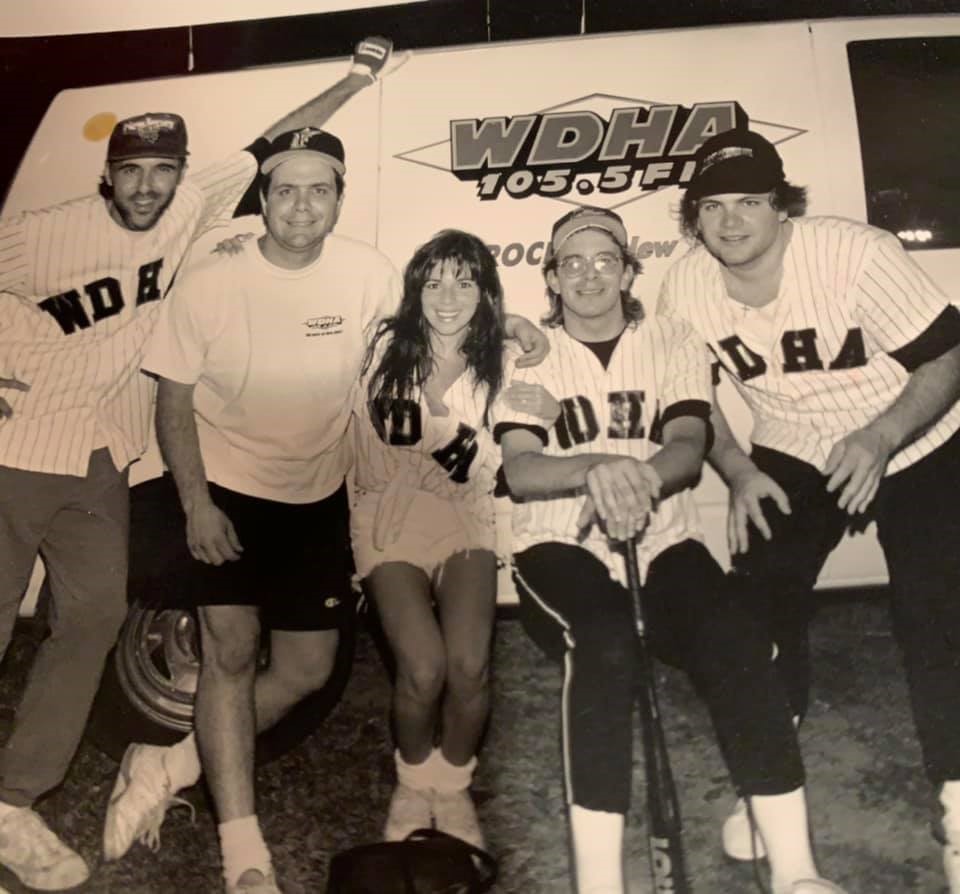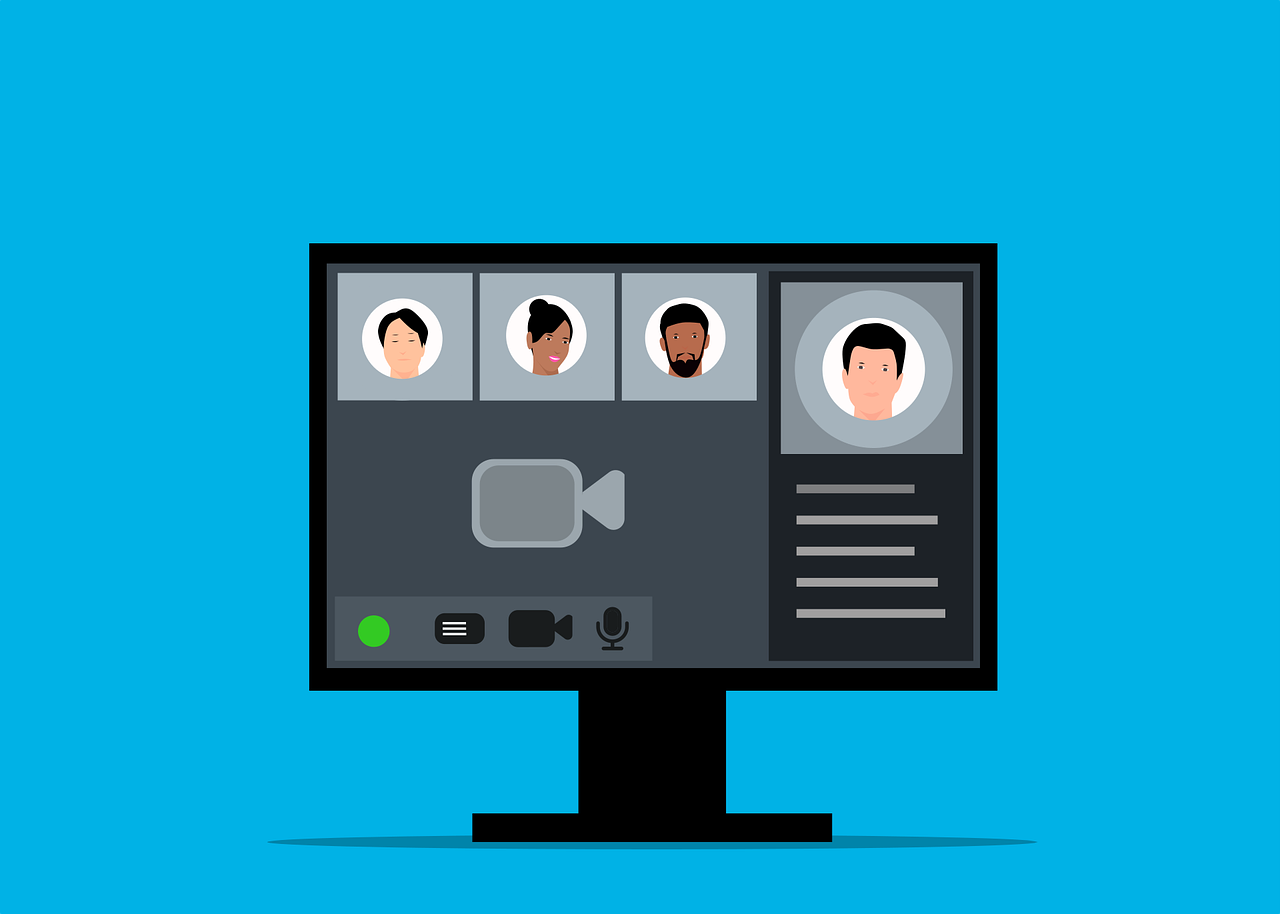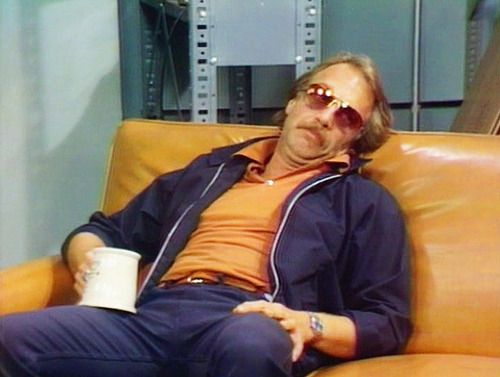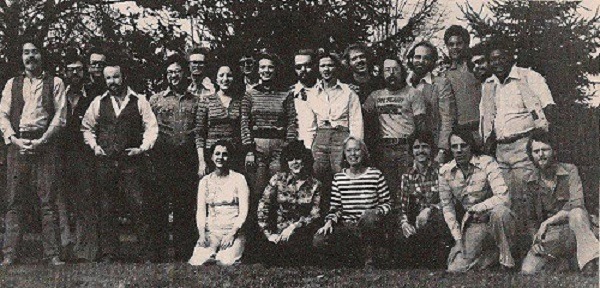
In yet another indication the world of work is still trying to regain some sense of equilibrium, a new Yahoo! Finance article tells us many young people have trouble dealing with the uniformity of the 9-to-5 workday, preferring instead to burn the midnight oil – and then some.
In addition to the impending 4-day work week, writer Orianna Rosa Royle tells us a new research study by Adobe conducted in the UK, Japan, and here in America points to the overnight hours as being most productive for Gen Z’s. (Seems to me I remember pulling lot of all-nighters back in college, too.)
The study of 5,500 employed workers across the three countries says companies are increasingly out-of-sync with the youngest generation, most comfortable working between 6pm to 3am.
How big a deal is this? The Adobe data show seven in ten young workers would hand in their resignations in order to gain more control over their work regimens. And around half of employed Gen Z’s say they’re already planning on leaving their current job because of the issues that revolve around work schedules and productivity.
 Or should we call them what they are? Disputes over personal time off, work from home productivity, and related issues that speak to a yearning for a more entrepreneurial structure among many of these young workers.
Or should we call them what they are? Disputes over personal time off, work from home productivity, and related issues that speak to a yearning for a more entrepreneurial structure among many of these young workers.
I can speak to this. For 40 years now, not a single person has asked me what I’m working on. No one has admonished me for getting to the office a little late last Friday. No one seems to care whether I work from home or why I do it. And there was no pushback when I elected to stay in Vegas for an extra day last month when the NAB was scheduled.
But for everyone else who works for other people, there is a clear cut hierarchal pecking order that goes along with being an employee. The bosses are the ones who set working hours, policies, meeting attendance, and even dress codes. You adhere or there are consequences.
All of these factors contributed to what used to be an important element of the workplace – company culture. Some organizations had it, some aspired to it, while others never bothered. But there was a clear, palpable vibe to a work space – especially radio stations.
was a clear, palpable vibe to a work space – especially radio stations.
As a consultant, I’ve gotten quite good at walking into a radio building and quickly sizing up the culture. It isn’t hard to feel the electricity in the hallways, sales cubicles, programming wing, and air studio. Some stations had that energy – a vibe that promised excitement and even fun. Others, however, resembled the atmosphere of a New England Casualty & Life office.
Post-pandemic, most radio stations have lost their cultural fastball. Of course, part of the problem is fewer people in the hallways and offices, thanks to RIFs, terminations, retirements, and resignations. And the rest is exacerbated by work-from-homers, happier to sit in front of their computers in spare bedrooms with their bathrobes on than walk down to the kitchen to refill their morning show logoed coffee mug.
Walk into many radio buildings these days – those with five or even more stations housed under the same roof – and you’re likely to see entire hallways and wings devoid of people. It’s eerie, uncomfortable, and soulless. Now, don’t get me wrong. This isn’t the rantings of an aging Baby Boomer pining for the good old days of radio.
 Instead, I’m suggesting that if you’re part of the “new guard” or relish not being in the station most days of the week, you may be missing out something important.
Instead, I’m suggesting that if you’re part of the “new guard” or relish not being in the station most days of the week, you may be missing out something important.
It’s not just about your productivity while you’re working in your workout clothes, another topic for perhaps another day. It is about your ability to work, hang out, and collaborate with other members of your team. That’s where the ideas come from, and where they get better. This becomes especially important for new hires where it has become exponentially more difficult to onboard them, show them the ropes, and truly help them get to know their colleagues and learn the business.
We’re also better when we collaborate. It’s why classic brainstorming often produced results. When we work together as a team, chances are good things will happen. When we’re isolated, not so much.
Across generations, at least part of the reason why most people went into radio in the first place was because it was fun. Whether you were on the air, carried a list, ran traffic logs, or did studio maintenance, a radio station is a fun, entertaining place in which to spend time.
I’m sorry – there is nothing fun about sitting in front of your computer – alone -for hours on end, taking breaks to walk the dog or run an errand.
Those Zoom calls that provide “interaction” were instrumental in getting us through the pandemic. They still serve a purpose today, used wisely and not too often. But they are a poor replacement for walking into the same room – or lounge or kitchen or bar – with a team of staffers. You cannot fully contribute to the station’s essence – whether you’re in sales or programming – when you’re WFH. By the same token, radio stations down to a number of employees you can count on one hand aren’t radio stations at all – they feel like abandoned buildings, shells of their former selves.
team of staffers. You cannot fully contribute to the station’s essence – whether you’re in sales or programming – when you’re WFH. By the same token, radio stations down to a number of employees you can count on one hand aren’t radio stations at all – they feel like abandoned buildings, shells of their former selves.
When I think about the radio people who made an impression on me and contributed to the betterments of their companies and their industry, they had certain characteristics:
- They stood on desks to fight for what they believed.
- They loved a good argument, whether it revolved around programming philosophy, an artist’s integrity, or the quality of a song.
- They were selfless. When there was an emergency – weather, technical implosion, community crisis, or just someone calling in sick – they were there for the station.
- They left it all on the field.
Maybe that ship has sailed…or sunk. Perhaps the behavior of parent companies has rendered those behaviors out of step with times. And of course, COVID has rejiggered the work:life balance for millions of us, calling into question company loyalty, as well as commitments to friends, family, and self.
I get it.

But what may have been lost in translation is the connective tissue of working with others. That came across to me in an Op/Ed by New York Times’ scribe, Maureen Dowd. In Sunday’s edition, her “Requiem for the Newsroom” laments these losses of camaraderie and a sense of purpose.
The moment I read it, Dowd’s story had a direct connection to radio. By Sunday morning, no fewer than three people had emailed it to me.
In her story, if you do a find:search:replace with “newsroom” and add “radio station,” it all falls into place. Dowd has written a compelling piece that speaks to this issue of workplace loss. For radio people, it’s a slam dunk.
Dowd posits the question, “What would a newspaper movie look like today?” Certainly, nothing like “All the President’s Men” or even the more recent “She Said,” set in the newsroom of the New York Times.
But the same is true in radio. Movies and TV shows like “FM,” “WKRP,” ‘Frasier,” and “NewsRadio” made radio seem like the fun, crazy place that it was. Sadly, today’s radio station wouldn’t make a good sitcom or even a drama. It wouldn’t require an entire season or even a handful of episodes to sum up what’s going on. And it most likely would be cancelled in a hurry.
Imagine Roz asking Frazier if it would be OK if she worked from home Monday, Wednesday or Friday. Or Dr. Johnny Fever putting in for more personal time off.
Radio stations were where you learned the craft from the veterans working under the same roof. Sitting in the control room for an hour, watching these pros do their shows was an education. Making sales calls with the staff’s grizzled veteran taught you the fine art of networking, relatability, and schmoozing. There really wasn’t much in the way of training. You hung out, and if you were smart, you absorbed a lot – good habits, not-so-good ones, and everything in between.
When you read Dowd’s piece – and you think about the subdued atmosphere many in radio are experiencing these days – it often comes down to a loss of people and at-work situations not conducive to interaction.
And yes, it runs both ways.
It is romantic to think back to the days when staffs hung out, collaborated, and even played softball together after hours. They were fascinating collections of personalities and neuroses. Dowd quotes former newspaper writer, Mike Isikoff , describing the print posse in much the same way:
“Newsrooms were a crackling gaggle of gossip, jokes, anxiety and oddball hilarious characters. Now we sit at home alone staring at our computers. What a drag.”
But the fact is, there was conflict – sometimes lots of it. Programming vs. sales, everybody hating on the new “hot-lining” PD, inequities in compensation, nonstop gossip and rumors, and myriad other annoyances and points of friction that consumed our days and even roadblocked progress.
But that’s part of the challenge – finding a way to make these people part of the fabric of the brand – and/or accepting the fact they’re different, and that’s part of what defines their contributions.

Maybe it’s wistful or even unrealistic to expect radio might somehow regain that spirit as we move onward through uncharted waters. The last few years have brought great change to the business. As we discuss often in this blog, disruption is all part of the drill. The ability to evolve, change, and be resilient has helped many get through these times not only unscathed, but in better shape to deal with an uncertain future – whether it’s company failures, new startups, AI, and other shifts that will no doubt mark the business moving forward.
And along with those changes and the ones to come may be the ways in which one’s job and one’s personal life once merged back in those “radio days.” For so many radio pros over these past many decades, it was often hard to separate the two.
Maybe the skew back to having a life will turn out to be a good thing.
But it will come at a cost.
Thanks to Bill Sherard, Terrie Carr, & Ken Calvert.
- Media And Technology In 2025: Believe It Or Not! - April 18, 2025
- In Radio, You Just Never Know - April 17, 2025
- The Secret To Making A Great Podcast (And Great Radio) - April 16, 2025




Fred, as SR VP/GM of Westwood One’s 24/7 Music Formats, we had about 150 people in and out of our building in Denver each week. That “vibe” you mentioned was unmistakeable. Mini jock meetings in the hallway, engineers geeking out, Hawaiian shirt Friday, I’d bring bagels every week and even the occasional visitor from NY were all part of the atmosphere. Some days, it was hard to get a parking spot. Now, the jocks are at home, many now just 1099 contractors, the studios are storage rooms (waiting for the lease to end so Cumulus can get rid of most of the obligation I imagine) and there were 4 cars (all tech people) in the parking lot. I realize I’d have no interest in working there anymore. Getting into the business in the ‘70’s, I was immersed in the atmosphere of the building, music blasting out of the studios and seeing people I admired hearing on the air. It was total fun…and they paid us for it. You were part of the team. I’m not sure what, exactly would motivate a young person to get into the business anymore.
Yup, even at the network level there was that vibe. I spent a lot of time at MTV/Vh1 on 1515 Broadway in the 80’s and 90’s, and even though it was Midtown Manhattan, there was electricity, excitement, fun – always. There is a lot to be said for collaborating & hanging out with people, formally and informally.
Everything you said Phil! (With the exception of the 70s, I was still a child😉) The vibe when I worked for you and Beau Phillips, was hands down, the most fun I ever had in radio. From the talent, engineers to Lori at the front desk, it was pure magic. Of course today, I’d give anything for that back-in-a-radio station vibe, instead of voice tracking in my home studio today, Fred. It’s what I miss most. Even the outrageous egos from your typical morning show guys, to the dark emo overnight girl/guy.
Like many nostalgic things in our world, I believe one day that will all return. I’d say “mark my words”, but we’ll all be gone from this planet by then.
I read the Maureen Dowd article Sunday…I’ve seen both sides of this in radio…I started a station where for years, until it was beaten out of us by its current ownership, everybody there couldn’t wait to get to the studio everyday and see what kind of magic was going to come down and see how much better the sheer act of being in the same place at the same time was going to make us…I retired from there after 26 years and got back in the game a few months ago, at a place that houses about 8-9 stations…and there’s never anybody there…no doubt it once was an incubator of great vibes, energy, ideas, creativity, all the things talked about here…I went in knowing what it was probably going to be like but hoping for something like what I used to know…and that something like what I used to know doesn’t exist…it’s gone and it ain’t coming back…and you wonder why the product is losing its edge and listeners? this has more than a little to do with it
Mike, you’ve been at this long enough to have experienced both environments. And your conclusion about the possibility of it coming back is pragmatic – and probably spot on. Thanks for the comment.
I guess it’s harder to be guilty of microaggressions and other transgressions when you don’t interact with actual human beings. It sure makes things simpler for HR. Everyone stays in their own little “safe space” and avoids any type of conflict, or creativity for that matter. And they get a participation trophy when their “quiet quitting” finally becomes real quitting. To quote the Wicked Witch of West, “Oh, what a world! What a world!”
True that, Brian. Even passive aggressive behavior is less apparent over Zoom. Thanks, Brian.
I’ve always felt that radio is people sharing themselves with other people. The listener is number one, but the soul, acumen, outrageous humor, native ability, refreshing ideas, fragile egos and compulsive drive of one’s co-workers is inspirational. While you were “in the box” for your 4 hours, the team that peopled the place and popped into the studio to give you an “attagirl” made all the difference. I hope that there will be a return to collaborative work in our industry. It can never be like it was in 1977 at WBBY in Westerville, Ohio, but there is nothing like the shared experience of creating the magic that is radio for the listener.
When I saw your post I thought to myself, “that name is familiar”. When you dropped the calls WBBY it hit me! I loved listening to that station. I’m from Columbus and also worked at WVKO before leaving for the Carolinas in ’88. I know exactly what you’re talking about. By the way, I’m now at a full time Jazz station in Winston-Salem.
This is a great comment, Linda. It summarizes radio’s communal value in a lot fewer words than I used. Thanks!
This is an opportunity, as I see it.
There are two kinds of models for radio companies. If you understand and accept that, it may take some of the pressure off. But you need to know where your company sits. It’s either one or the other.
1. Real Estate Business. This isn’t necessarily a bad approach from a BUSINESS perspective. Actually, there’s money to be made to eliminate expenses, while grabbing cash from selling buildings and transmitter sites. It’s taking things out like a game of pickup sticks. From there, it’s just a matter of selling off the real estate, and the “project” is done. However, I’m not interested in this kind of model, and if you’re reading this, you probably aren’t either.
2. Radio Business. You can tell the difference pretty quickly. Leadership actually talks about radio and related audio, and what it can be. You see it in their efforts, and you see and hear a living thing, you see people who are doing things “outside.”
Personal human connection IS our business.
Questions to ask of yourself:
1. Am I living an adventurous life or have I become an “indoor cat?”
2. If I work for a radio factory from my basement, while it might be very convenient, am I bored? Am I boring?
3. If I have no life outside, how can I appeal to and interest others who also have “convenienced” things so much that life is dull?
Companies are often non-inspirational. They’re often happier to have their “employees” work from home, for many reasons.
However it doesn’t mean you can’t be interesting because your job is described like a factory shift.
In what ways might I create fun and interesting content through life experiences I do have. It may be that the “real estate/factory” doesn’t want that. And if you’re proactive, you can change your situation.
Time for a choice:
1. Keep things as they are because I just give them what they want at the factory and I don’t have to leave the house.
3. Identify broadcasters are in the broadcasting business, and find a place where you can have work and social interaction.
Now you have something to talk about
Fred, it’s OK to be “an aging Baby Boomer pining for the good old days of radio.” It was a helluva lot of fun. And I’m grateful to be fortunate enough to have experienced it.
Me, too! Thanks, Mark.
Fred,
Another story about a station’s “vibe.” In the ‘80s I worked at KFMQ in Lincoln, NE. Our studio was in the basement of a downtown office building. It was dark, dirty, dusty and absolutely wonderful. Then the station moved across town to a new, first story, sparkling clean facility. It was nice, neat and orderly. Because it was so nice and neat, management said staff could not wear blue jeans. Really? An AOR station and jeans were banned. Poof – there went the vibe. Not because of the kinds of pants we could or couldn’t wear. The old studio in the basement of the Terminal Building was cool. The new digs looked like any office complex, but with record albums.
And today? The station moved again, changed the format a couple of times, dropped the call letters and is now just a memory to me.
And now even the terminal building is now one of Lincoln’s soulless condo projects for college kids with wealthy parents. No more dingy basement!
I very much want to take a tour to see the basement. And, it ain’t for college kids. A 2-bedroom condo will set you back about $750k.
To some extent, that was the story when WRIF moved out of the trailers and into a palatial new building. As someone said back then, the new facility lacked the “funk factor.”
“I’m sorry – there is nothing fun about sitting in front of your computer – alone -for hours on end, taking breaks to walk the dog or run an errand.” Guess im an exception I have fun and enjoy not being interrupted.
Abigail, I know it is. I appreciate you wanting to work out of the office. My point is that if you’re in radio, you may be missing out on a great experience. But that said, that ship may have sailed. Thanks for the reminder.
Fred, you said it best . . .”electricity, excitement, fun – always. There is a lot to be said for collaborating & hanging out with people, formally and informally”.
It starts at the top and for those of us who couldn’t wait to go through the doors of our stations – there’s a lot to be said for a positive culture of the three elements here. Let’s hope that the front offices soon learn how this all works.
And you can feel it the moment you walk through the front door, Dave. Thanks for the comment.
Speaking of one’s job and personal life, you said, “For so many radio pros over these past many decades, it was often hard to separate the two.”
I’d go so far to say if you could, you probably didn’t enjoy your time in radio, you probably didn’t last too long in radio, and you probably truly never belonged in radio. Not a shot at you or your abilities, it just wasn’t your thing. For me, it would be unthinkable to separate the two. And I wouldn’t want it any other way.
Guilty as charged, David!
Thanks for your insight, Fred. But before we get too romantic about the good old days, please remember back then air talent had to work at least one Saturday or Sunday shift a week, had to work holidays (which is not easy on kids at their first job in another state – just sayin’,) rarely got raises unless they moved, and frequently received criticism that wasn’t constructive – and not just from their supervisors.
Not that it was all bad. Hey, I remember playing softball with my friends at a medium market rock station. We were like family. Every Wednesday at noon we’d hit a pub and have lunch. We went to each other’s weddings. We did Hawaiian shirt Fridays. We had Oscar parties. I loved it. And sure, we’d have the petty bickering now and again, and shrug about it later. As we used to say, “All families fight.” But we were a team. We supported each other. Not every station had that, though, especially once consolidation kicked in.
There’s a reason why young people who have talent choose another outlet for it…they’ve seen what the generations before them went through when competition was ruthless. Expectations were that you’d give up your personal life to be part of the monolith…and if the monolith had cutbacks, you were gone. “It’s just business.” Gen Z saw that and decided they want a life. Can’t blame them for that. Bodies in the building now are usually expected to multi-task for multiple stations and even multiple markets. Their reward is to keep their job. That’s not a life. If those of us who want to still love our industry want to see it get healthy again, we need to change that.
Dianna, I remember the 6th day well. It made for long weeks. However, many days began and ended with the show. “Four and out the door” was pretty common.
I understand and respect Gen Z’s life outside of the station. They tend to take pretty good notes and most have concluded living at a radio station is not worth it. (They don’t know what they’re missing!)
I have differing thoughts on the subject.
When I worked overnights I’d lock up the station for a few minutes, go to the local convenience store and “trade” lunch for a few requests. So having the building to yourself had its advantages.
Conversely when everybody worked in the office and I was a Traffic Manager when someone from sales dropped in to ask me what the format of the station was.
Nothing is black or white…it’s all shades of grey!
Indeed, Jerry. While I’m a believe in station culture, some of my favorite times were late at night when it was just me and the person on the air (or when I was that person).
Those are actually some of my favorite memories–especially early on as the “new guy” expected to work holidays. You had the place to yourself, had no traffic to or from work, got extra pay–and if you played your “poor me having to work on the holiday” cards right, you got friends bringing you turkey and stuffing and potatoes and pie during your shift (and more than once some dinner invites after your shift!) Not a bad way to spend the holiday–doing what you love most while getting extra pay and all that love from friends and family!